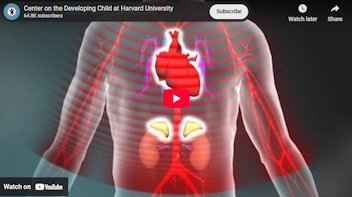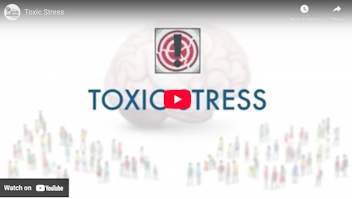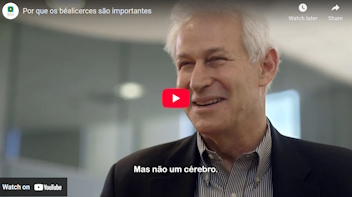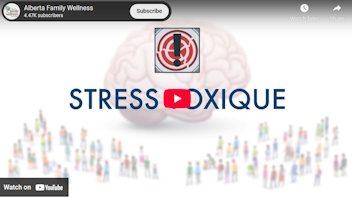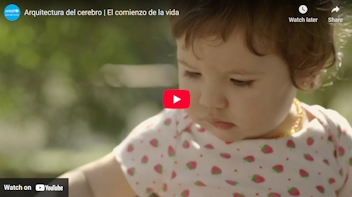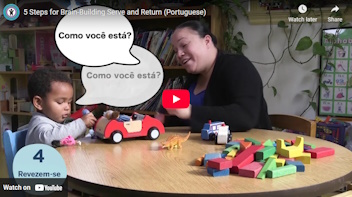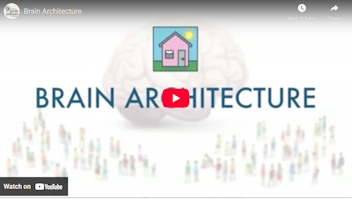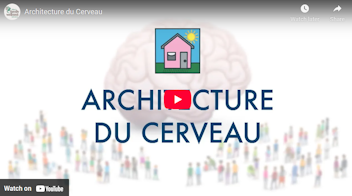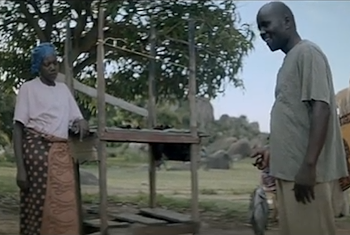Toxic Stress Derails Healthy Development
This video explains the concept of normal (temporary) vs. toxic stress and describes how toxic stress affects child development. It posits the role of responsive and warm adults as that of a buffer protecting the child from the effects of prolonged or toxic stress.Read More →




